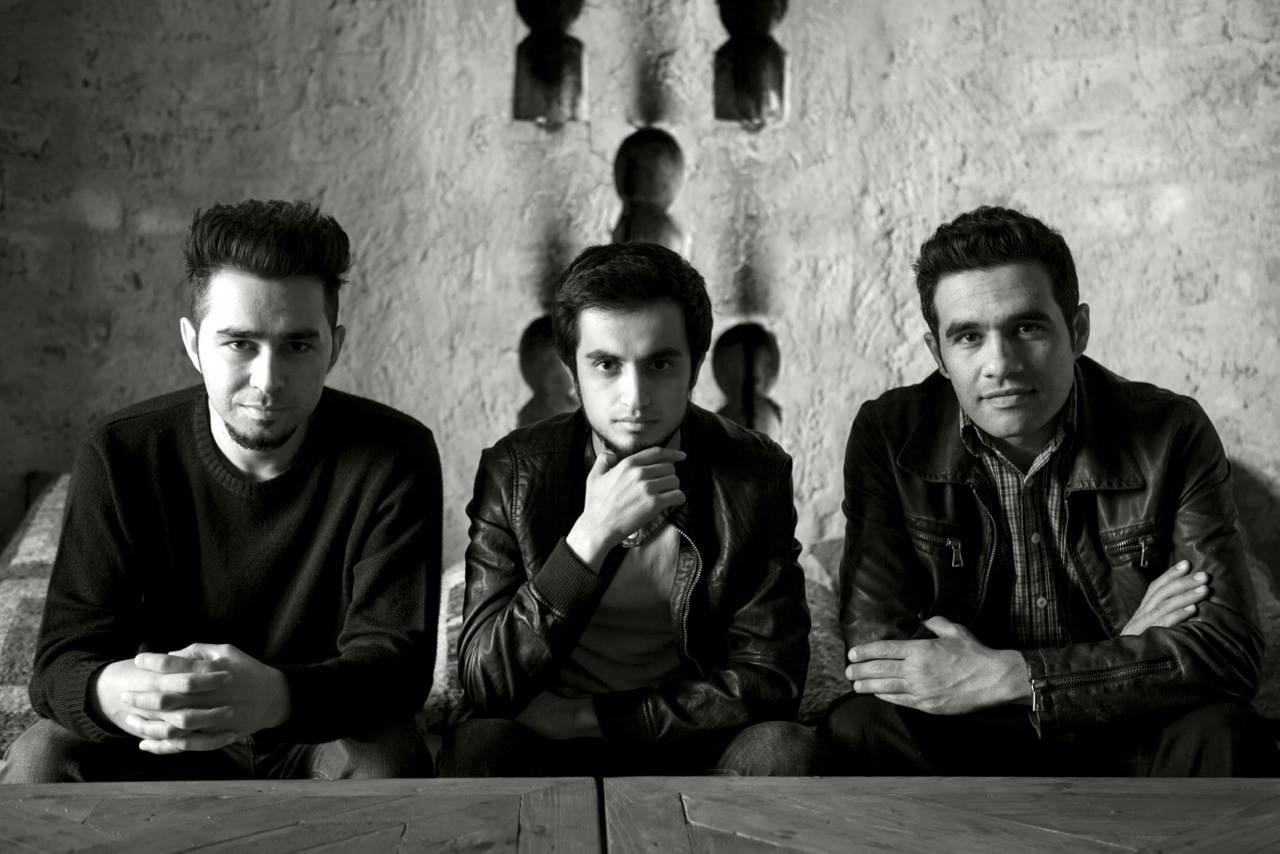The Afghan rockers of Kabul Dreams now dream of making it big in the US
Kabul Dreams
The band Kabul Dreams is considered the first rock band to emerge from Afghanistan after the Taliban was overthrown.
They kicked off their first US tour at South by Southwest on Thursday. Lead singer Sulyman Qardash says it wasn’t easy forming a band in Afghanistan, where suicide bombs are still a daily concern.
Qardash says in 2011, Kabul Dreams decided to organize a rock concert at downtown Kabul’s busiest street market — but local security forces immediately asked him to stop.
“We said no because — give me one logical reason that I should stop it, and I will stop,” Qardash says. “It’s not prayer time, it’s not something. We organized everything by ourselves."
The "logical reason" Qardash says Afghan security gave was … security. There had been two suicide bombings in the neighborhood that week — and police didn’t want to attract another one.
The band decided to play anyway. Qardash says they were tired of living in fear. They figured an outdoor concert would help people find the courage to gather publicly again.
Those frequent bombings come up in a song called "Air" on Kabul Dreams’ first album, "Plastic Words."
“There is a line that says that, ‘Bombs and explosions are not scaring me, they are just playing with my heart sometimes,’” Qardash says.
That first outdoor concert helped broaden the band’s appeal. Before they would only play at private universities and cultural centers — concerts for Afghanistan’s elite. This was a chance for all types of young people to hear indie rock music.
“Car washers and beggars and things like that,” Qardash says. “So basically, our focus was on them, okay, let’s play music, because kids are kids. No matter if they live in Kabul or in San Francisco, it doesn’t matter because they want fun.”
Kabul Dreams plays music in both English and Dari — one of Afghanistan’s native languages. The song "Sadae Man," or "My voice," is about the importance of Afghanistan’s youth having a collective voice.
Qardash actually grew up in neighboring Uzbekistan and moved to Kabul in 2008. He immediately stood out in his skinny jeans and Converse sneakers. He says he’d get stares, but people mostly left him alone — until he started Kabul Dreams. That’s when the band started getting death threats.
“When there is something new, always there is a reaction, because acceptance is not easy,” he says. “Because rock music is unusual for Afghan’s ears.”
The band has kept a mostly-low profile since then. They never advertised their concerts for fear it would attract extremists. And they kept street concerts to a minimum. Siddique Ahmad, the bassist for Kabul Dreams, says this extremist, anti-music mentality isn’t what Afghanistan is really about.
“In Afghanistan as a whole, people love music, all the time,” says Ahmad. “Music is a part of our wedding ceremonies, our other ceremonies that we have, that we celebrate. And it has always been there, always. Since there was Afghanistan, it has always been.”
Ahmad grew up in Pakistan and returned home a few years after the fall of the Taliban. He says live performances can be dangerous, but today Afghanistan has dozens of FM music channels, playing everything from Afghan and Indian traditional music to western rock songs.
Ahmad says this new exposure to international music breeds tolerance, and helps the country heal from three decades of war.
“If you consider the 30 years, every kid has seen … at least one incident where people are dead,” Ahmad says. “Psychologically, that can be one stress that is with you your whole life. And one of the ways that you can heal all of those is through music.”
Kabul Dreams’ is debuting music from their new EP during their US tour — including the song "Bomb Blast." The band says they’ll be temporarily living in the US to get some more exposure, but Kabul will always be their home.
We want to hear your feedback so we can keep improving our website, theworld.org. Please fill out this quick survey and let us know your thoughts (your answers will be anonymous). Thanks for your time!
